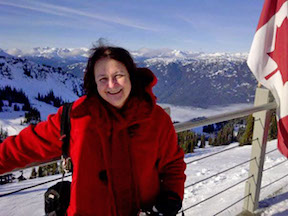What is Barbara Smith’s chief ground of complaint? Which group of people are especially invisible in contemporary culture? (2302) What changes might the greater recognition of black women have on other social movements and culture as a whole? (2303)
Which kinds of critics and writers does she cite to prove her point? Are these choices convincing? (Showalter, Spacks, Moers, 2305)
What are some of the things reviewers have said about black women’s contributions? (2304-2305) Who were/are Alain Locke, Darwin Turner and Ismael Reed?
What examples does she cite of hostile collegial remarks? (2307)
To counter these problems, what does she advocate? (2307) What common elements does she see in a tradition of black women’s writings? (many weave root-working, herbal medicine, conjure and midwifery into the fabric of their stories, pay attention to black women’s language, 2308)
Where should the reader look for models of interpretation of black women’s literature? (2308)
What changes would such insights have on literary criticism? (more daring, 2308)
What should be the relationship of black women’s literary criticism to the political situation of black women and to the black feminist movement?
What early efforts to define black women’s literature does she cite? (2308, 2310) How does she define an inherently “lesbian novel,” and does this resemble Adrienne Rich’s “lesbian continuum”? (2308)
Is Smith correct that there have been many important black lesbian or bisexual writers? (Angelina Grimke, Mae Cowdery, Anne Spencer (?), Audre Lorde, Michelle Cliff, Jackie Kay, and many others)
Which aspects of Toni Morrison’s novel Sula does she believe have been underrepresented in the criticism? (2310-12)
What does Smith see as the relationship between black lesbianism and independence? (2311) Between black lesbians and black heterosexual women? (2313)
What is needed to challenge black anti-lesbianism beyond the confines of academic life? (a movement, 2314)
What motivates Smith to mention three critics who have written on the topic of black women’s literature? (2314-15)
What topic needs a book on it? (lives of black feminist lesbians, 2315) What is her final appeal, and is it an effective ending for this essay? (2315, “When such a book exists then each of us will not only know better how to live but how to dream.”)
Why does Smith seem to conflate or move back and forth between notions of black lesbianism and portrayals of black women in general?
Can you see resemblances between Smith’s arguments and point of view and those of other feminist writers of the period such as Adrienne Rich and Annette Kolodny? Helene Cixous? With other African-American writers?
page numbers are from the Norton Anthology of Theory and Criticism
